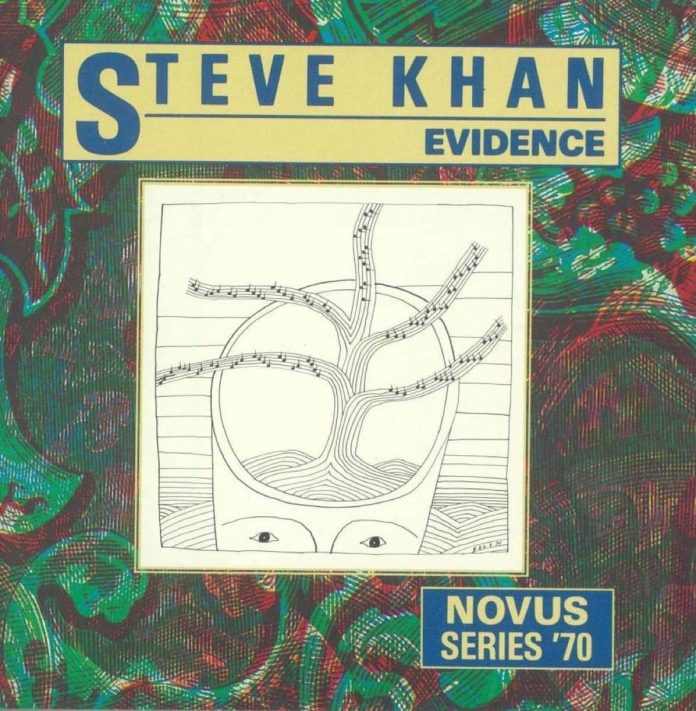Son of lyricist Sammy Cahn, Steve Khan established himself in the mid-seventies as a busy New York session player. He was a sideman in early editions of the Brecker Brothers band before leading a series of aggressive CBS dates in the late seventies, and contributing some sparkling fills to Steely Dan’s Gaucho in the same year as the earlier recording of this pair. Latterly, he has concentrated his energy on leading his quartet Eyewitness, as well as making a brief appearance in Joe Zawinul’s Weather Update in the mid-eighties.
Evidence, a reissue in the BMG’s useful Novus Series ’70 series, finds Khan paying warm and lyrical tribute to his first inspirations – all of them modern mainstream jazzmen. The album is dominated by either solo – as in the quirky Monk medley – or overdubbed guitar. Khan’s sound, created on flat-top guitars and electric guitars using round-wound strings and chorus effects, is a far cry from the dry, woody sound of his first model, Wes Montgomery, and while he hardly uses a Wes-like vocabulary, he clearly knows his bebop. Evidence is a reminder of a Khan whose style seemed to alter radically in a matter of months.
The Eyewitness quartet made its record debut in 1981 and took Khan in quite a different direction. The new band specialised in atmospheric, low-key, modal grooves over gentle Latin rhythms, with only a modicum of harmonic or thematic development and vague extemporisations which might have been mistaken for an accompanist’s fills. Little has altered since then; Anthony Jackson, the individualistic bassist who brought such motion to a number of late Steely Dan tracks remains, and the substitution of Dave Weckl for Steve Jordan has effected no significant changes.
Perhaps the highlight here is the quartet rendition of Cahn Snr’s Dedicated To You lyric; certainly it provides a welcome peak in an otherwise featureless landscape. However, even here Khan seems to lack the firm, forthright touch and creative spark which ignited his best early work. For that, we must turn to Evidence, which, even at half the length of Public Access, would offer more than double the value.
Discography
[Evidence] Infant Eyes; In A Silent Way; Melancholee; Threesome; Peace; Thelonious Monk Medley: Evidence; Think Of One; Monk’s Mood; Little Rootie Tootle; Monk’s Dream; Pannonica; Bye-Ya; Ruby, My Dear; Friday The 13th (39.24)
Khan (g/elg/tape loop). Recorded NYC, July 1980.
(BMG Novus Series ’70)
[Public Access] Sise; Blue Zone; Kamarica; Silent Screen; Mambosa; Butane Elvin; Botero People; Dedicated To You; Mama Chola (68.35)
Khan (elg/kyb): Anthony Jackson (elb); Dave Weckl (d); Manolo Badrena (pc/v). Recorded NYC, January 1989.
(GRP-9599-2)

